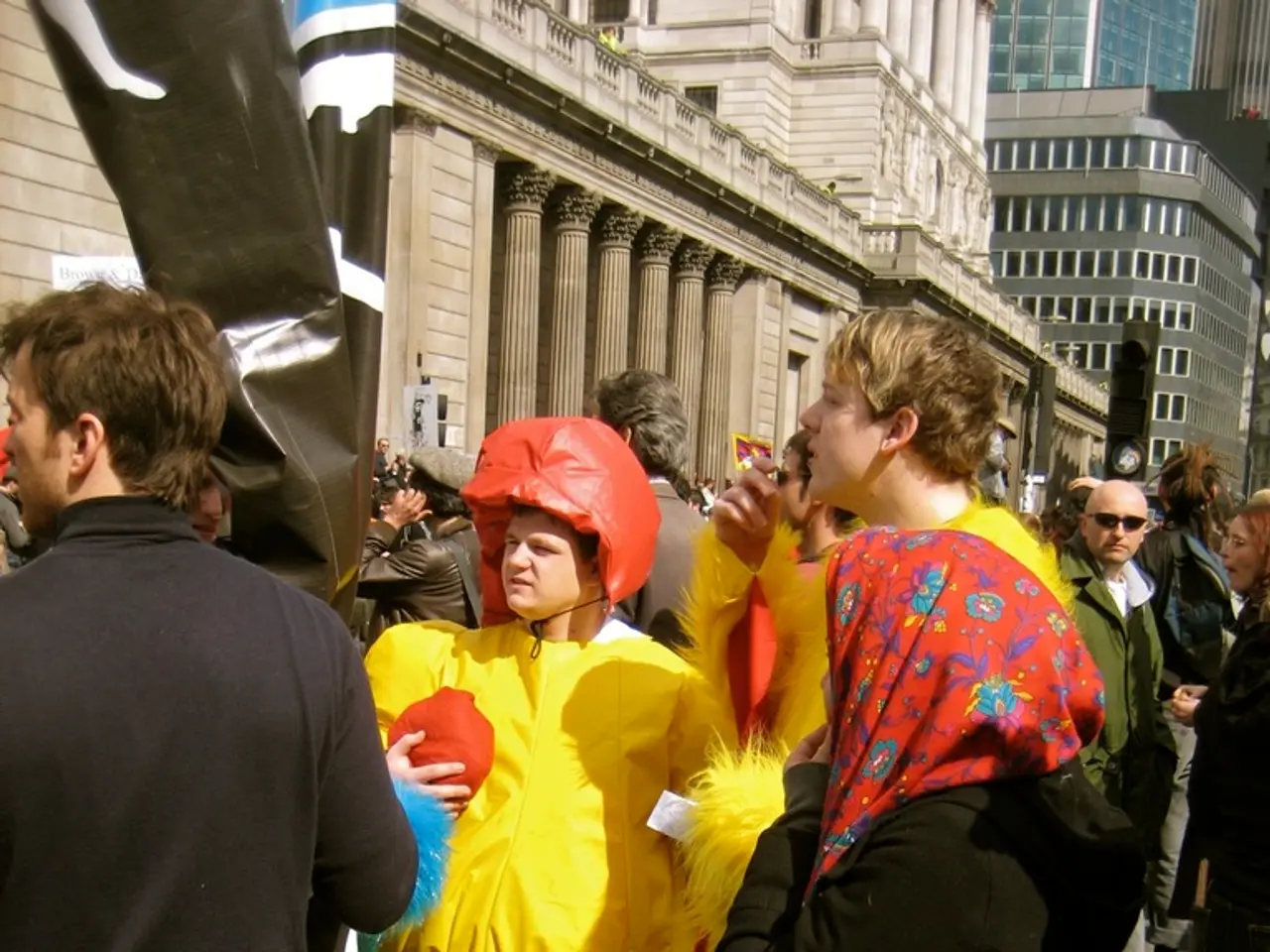Adults now receive visits from clinic clowns.
In a groundbreaking development, the University Hospital Münster (UKM) has expanded its Clinic-Clowns program to include adult patients. This unique approach recognizes the therapeutic potential of humor, play, and emotional support in alleviating stress, anxiety, and discomfort among hospitalized adults.
The expansion of Clinic-Clowns services marks an innovative development in patient care. While the clowns have been bringing joy to children's wards for years, this move extends the traditional role of therapeutic clowning beyond children to include adult patients.
Clowns like Pippo, Lollo, or Professor Spaghetti will now visit adult wards every Wednesday. These visits are not solely for entertainment purposes but also to help activate inner resources like courage and hope. The goal is to remind us that joy has a place in the hospital too.
The clowns bring their long-standing experience from nursing homes and rehabilitation centers. They adapt their performances and interactions to suit adult sensibilities, using humor, empathy, and personalized engagement rather than childish antics, creating a respectful and therapeutic environment.
The new offer does not replace the existing activities on the children's wards. Instead, it addresses a significant gap in psychosocial support for adults, acknowledging that they too benefit from lighthearted interaction during medical treatments.
Studies and observations report reduced feelings of loneliness, anxiety, and pain perception among adult patients who interact with Clinic-Clowns. The presence of clowns provides emotional relief and distraction from medical procedures.
The program works closely with hospital staff, including doctors, nurses, and psychologists, to ensure the timing and manner of visits complement medical schedules and patient needs without interference. This interdisciplinary collaboration is key to the success of the program.
The uniqueness lies in the professional training of the clowns in both artistic performance and psychological understanding, enabling them to engage sensitively with adults across various medical contexts. The clowns respect a 'no' from patients and make gentle contact with them.
Feedback from patients, families, and healthcare providers highlights improved patient morale and a more humane hospital experience. These encounters can be beneficial for adult patients, as stated in the UKM's media release.
Starting now, adult patients will receive regular visits from these clowns - about once a month. Some clowns have been active in clinics and institutions for decades, bringing their wealth of experience to the new initiative.
In summary, the extended Clinic-Clown program at University Hospital Münster exemplifies a patient-centered innovation that leverages humor and compassionate interaction to enhance adult patient care, helping to humanize the hospital environment and improve overall wellbeing during treatment.
The expansion of the Clinic-Clown program at the University Hospital Münster (UKM) now includes adult patients, acknowledging the therapeutic value of humor, play, and emotional support in adult health-and-wellness and mental-health contexts. This innovative development utilizes therapies-and-treatments that promote joy and hope, reducing stress, anxiety, and pain perception among adults undergoing medical treatments.




